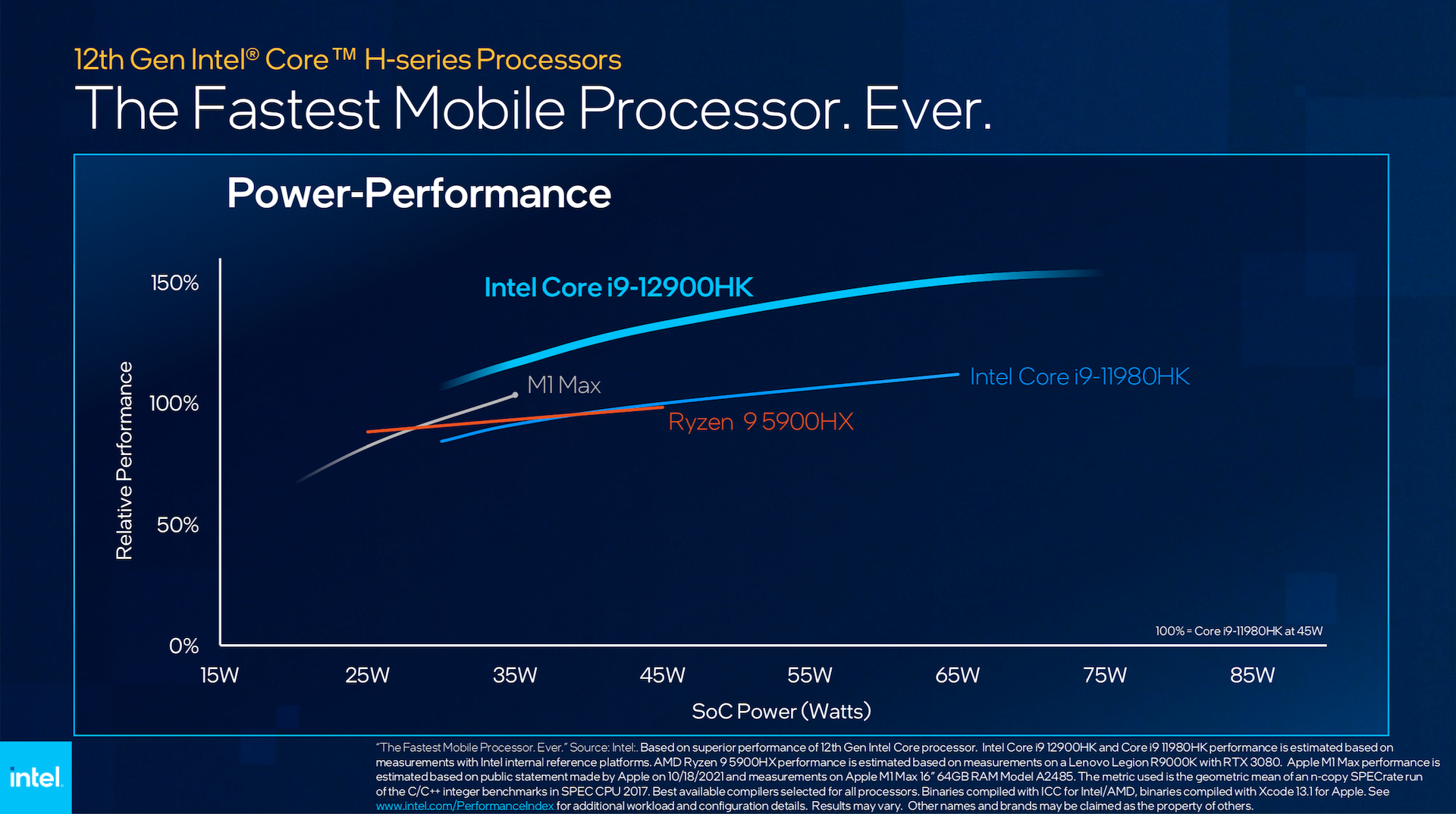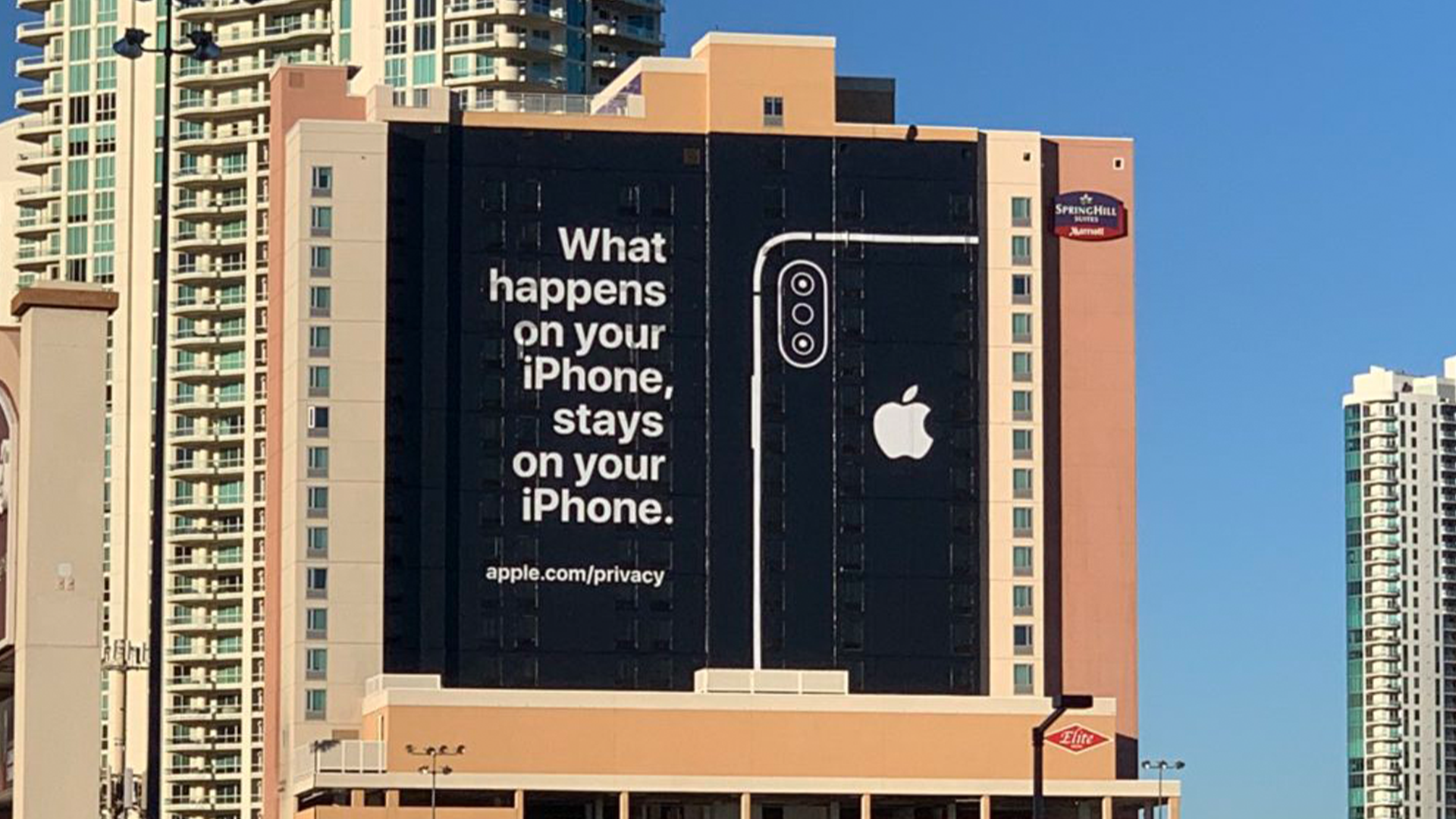Google, Intel, Nvidia, AMD. These and other companies made it a mission to mention Apple in some way at this year’s CES.
While Apple wasn’t actually at the event in Las Vegas, it still felt like everyone was talking about the company.
If you watched Intel and Nvidia’s live streams, you would have heard about products that were faster than Apple’s M1 Max chips for example (although further research looks to have put cold water on these claims by both companies already).
It’s only when you scratch the surface that you find that Apple has already been regarded as the winner at CES this year in a variety of categories, without being there in any official capacity.
Apple was in the eye of many at CES 2022
Intel was quick to compare its newest Alder Lake chips with the M1 Max, currently available in the MacBook Pro 14-inch and 16-inch models. The press release directly states that the Intel Core i9 chip is faster than the M1 Max, but when you consider the heat that dissipates from this CPU compared to Apple’s chips, there’s more than just speed that Apple beats the competition on.

The Core i9 can draw up to 115 watts of power, while the M1 Max requests 60 watts in regular use, and it usually doesn’t exceed 90 watts when macOS demands more power from the chip.
But this is just one example from Intel, as the company also showcased Apple Watch and iMessage integration with upcoming Evo PCs through Screenovate, an app that was recently acquired by the company in December.
Google also announced an effort to mimic the connectivity that Apple’s ecosystem of devices boasts. Soon, you’ll be able to pair multiple devices through an upcoming feature called Fast Pair. This allows your Android phone to unlock your Chromebook, or having your Pixel Buds being able to swap between your phone and laptop with no issue.
However, this isn’t just about Google and Intel being inspired by Apple’s software features.
But wait, there’s more
Find My is Apple’s service of integrating with other products that can be found through the Find My app. It’s the same method that AirTags offer, but the company is allowing other companies to use the same technology. Targus was one example at CES by integrating Find My into a backpack.
Belkin also announced earbuds that would feature Find My, alongside a mount for the iPhone 12 and iPhone 13 series that will be able to track your face, ideal for video calls or for creating the next viral TikTok video.
There’s also more efforts by companies such as Eve to integrate Apple’s HomeKit, which is a way of managing your home devices through the Home app, so you can control lights, your heating, and soon window blinds to switch on and off around your home when needed.
These are just some examples of what was announced at CES 2022, but it only shows how Apple was everywhere at the event, but not present itself. The only time where someone from Apple appeared at CES was in 2020 when Jane Horvath, Apple's senior director of privacy, took to the stage in a privacy roundtable.
And, the year before, the company decided to put up a banner in front of CES promoting the fact that your information is stored on your iPhone only.

This just proves that Apple doesn’t need to be at CES - companies such as Belkin with its products and Intel with its charts do the hard work for the company regardless. While there’s still doubt on whether events like this are still needed in a post-pandemic world, the underlying theme was that companies are getting ready to suit up for a battle that’s mostly, already been won by Apple.
- Check out all of TechRadar's CES 2022 coverage with reviews, reaction, and analysis of the best new tech we've seen, from 8K TVs and foldable displays to new phones, laptops and smart home gadgets.
No comments:
Post a Comment